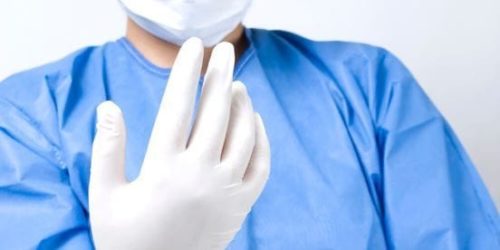
This may seem like an easy question with a simple answer. However, proving medical malpractice under New Jersey law is a difficult task which should only be undertaken by an experienced attorney.
Medical malpractice is when a doctor, nurse or other healthcare professional, through an act or failure to act, deviates from the generally accepted standard of care in the care and treatment of a patient. The standard of care is defined as the level of care that the medical community requires be rendered to a patient by a practitioner in a given field of medicine. A deviation from the standard of care must be proven in a court of law by the sworn testimony of a medical expert with the same credentials as the healthcare professional who is being sued. In other words, if you are suing a Board Certified Orthopedic Surgeon you must have a practicing Orthopedic Surgeon who is board certified in orthopedic surgery as an expert witness to prove your case.
Proving Medical Malpractice
If you are able to prove a deviation from the standard of care, you must then prove that, as a result of the deviation, the patient sustained an injury. Simply because a healthcare professional may be negligent in his care and treatment of a patient does not necessarily mean that the patient sustained damages. By way of example, a doctor may be negligent in failing to perform a lab test to diagnose cancer. However, if the cancer is subsequently diagnosed and diagnosed before it spreads and advances to a later stage, then under those circumstances there is negligence without damages. When the patient is able to prove through competent medical testimony that the healthcare professional was negligent and the negligence caused damages then the patient would have a valid claim under New Jersey Law.
On the other hand, simply because a patient may suffer a poor outcome or result from a doctor’s care and treatment does not mean that the doctor committed malpractice. An example of this would be if a doctor performs surgery and the patient develops an infection. The surgeon may have done everything properly but, nevertheless, the patient contracted an infection. An infection is a foreseeable risk of surgery and may, in many instances, develop in the absence of negligence. In this example, even if the infection were to lead to life altering injuries, the patient would not be able to sue for damages because the doctor was not negligent.
One thing that is clear is that ascertaining what circumstances may be deemed medical malpractice and proving such a case in a court of law requires a lawyer skilled and experienced in this highly specialized area of Personal Injury law.
Questions?
If you have any questions or believe that you may have been a victim of medical malpractice, please contact the Law Offices of Edward C. Lutz, LLC for a free case evaluation and consultation.